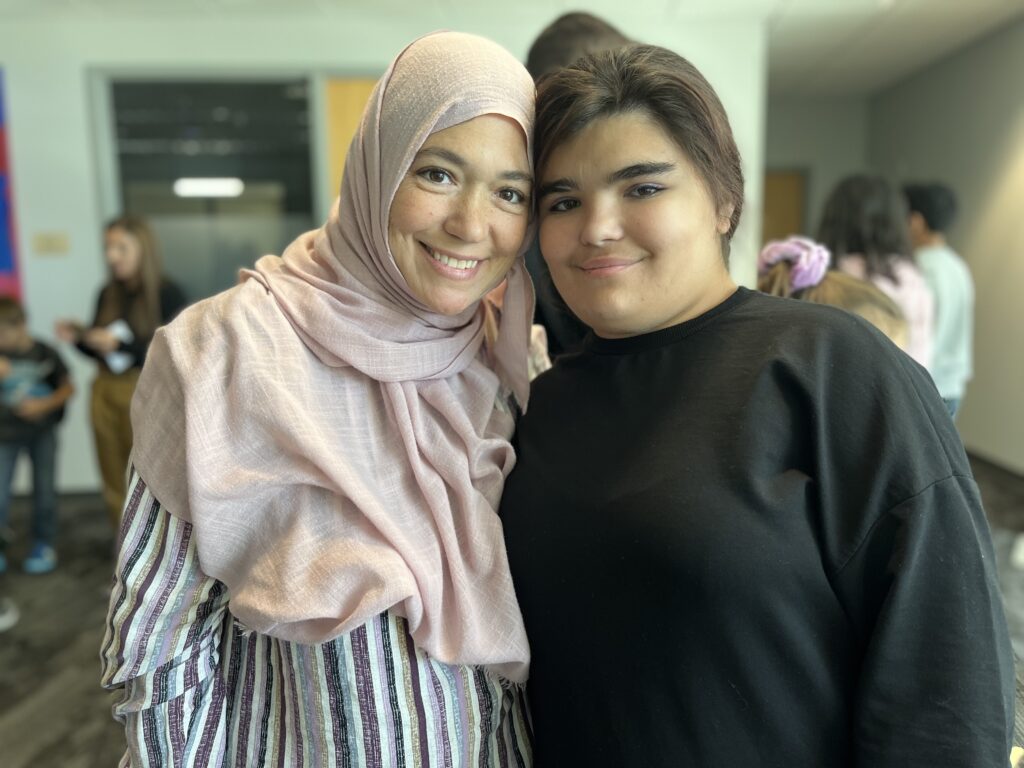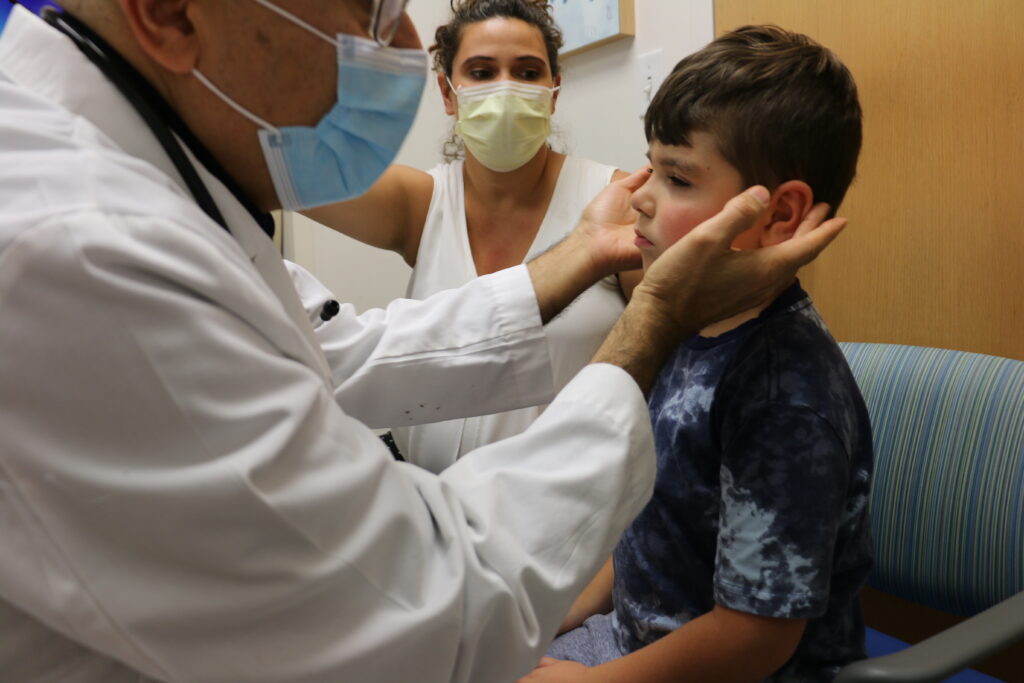A first of its kind clinic has parents and medical professionals alike excited. The inaugural DeSanto-Shinawi Syndrome clinic took place on Sept. 29-30 at St. Louis Children’s Hospital. It was the first clinic of its kind in St. Louis for the syndrome that was described by Washington University pediatrician Cori DeSanto, MD, and Washington University pediatric geneticist Marwan Shinawi, MD, et. al. in 2015.
DeSanto-Shinawi Syndrome (DESSH) is an autosomal dominant condition characterized by a variable degree of developmental delay/intellectual disability, decreased muscle tone, gastrointestinal and eye abnormalities, epilepsy, behavioral difficulties, hyperactivity, anxiety, autistic features and recognizable facial differences.
Back in 2015, only six patients were described with the then-unnamed genetic syndrome. Two were siblings whose genetic sequencing came back with the same mutation in the WAC gene. Now, there are 35 patients documented in medical literature with a currently estimated 175-200 patients worldwide.
“This is not extremely rare,” said Shinawi, who treats patients with DESSH at St. Louis Children’s Hospital. “I think it is an underdiagnosed disorder, but the more genetic testing we pursue for patients with intellectual disability, delayed developmental milestones, epilepsy, with or without facial differences, the higher the chance we detect additional patients with this condition.”
Leo, an energetic, 7-year-old New Jersey boy, was diagnosed with DESSH in 2016 when he was 14 months old. His mom, Caitlin Piccirillo, said they knew something was different about Leo when a brain scan came back abnormal in utero. “From the get go he’s caused worry,” she said. “When he was born, he seemed like a typical kid until he started missing his milestones. I feel like it’s been a bit of a roller-coaster finding out something’s up, and then ‘No, everything’s fine,’ and then something else is coming down the pike.”
Piccirillo said she is constantly thinking about the future, “I remember wondering when he was a toddler: Is he going to walk? Is he going to talk? And he’s starting to do all of those things. And now that he’s 7, it’s wondering even as far down the line: Will he be able to drive? Will he be able to live on his own? You’re kind of a little bit in the dark, like every mom, but you have different worries about what the future holds.”


“The most challenging aspects for the parents are the behavioral difficulties,” Shinawi said. He said, at the moment, providers can prescribe existing medications to treat problems such as hyperactivity and anxiety in DESSH patients, but the aim down the line is finding a treatment specifically targeted to help lessen the symptoms patients with DESSH syndrome experience. Research on animal models is in progress, but Shinawi said, “Using these models, we are getting closer to the point where we can run clinical trials of investigational drugs to treat different aspects of this disorder.”
In 2019, Piccirillo and her husband created The DESSH Foundation — based in New Jersey. The foundation started as a way to spread awareness and grew to a non-profit “because there was a need.”
Colleen Tosti, a member of The DESSH Foundation board, said the main goal of the foundation is to “support families and patients who have DeSanto-Shinawi Syndrome. Also, to get the word out to the medical community, since it is so new. A lot of people have not heard about it.”
Another goal is to create a supportive community for DESSH patients. “I want this [foundation] to be parent-led, led by the folks who are managing their kids every day,” Piccirillo said. “I’ve learned that it’s just not possible with one person. All of the families are great advocates for their kids.”
After years of planning and a brief pause because of the COVID-19 pandemic, Washington University School of Medicine in St. Louis and St. Louis Children’s Hospital, in collaboration with The DESSH Foundation, hosted the first-ever DESSH clinic in St. Louis. Thirteen patients from across the U.S., one from Germany and one from Australia came over the span of two days. All patients were extensively evaluated by a multidisciplinary team that included specialists in genetics, neurology, ophthalmology and psychology. In addition, blood samples and skin biopsies were collected from patients for research purposes.
The gathering of multiple families provided The DESSH Foundation with an excellent opportunity to host the DESSH Family Conference at WashU on Oct. 1, 2022. During the event, expert speakers discussed the genetics, clinical findings and psychological aspects of DESSH syndrome with families.
“[The clinic] was an amazing experience. It was a dream,” Shinawi said. “It was a collaborative effort, and I hope we can keep the momentum and have the clinic at least once a year,” he said.
